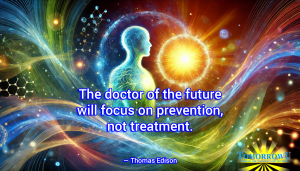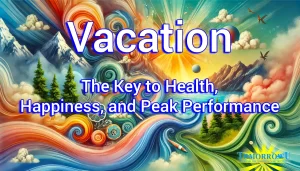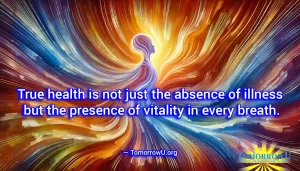Physical well-being refers to maintaining and enhancing bodily health through regular exercise, proper nutrition, adequate rest, and preventive care. It involves optimizing physical fitness, managing health conditions, and adopting habits that support overall physical health. Prioritizing physical well-being contributes to improved energy levels, disease prevention, and a higher quality of life.
Health as Your Greatest Asset We often think of investments in terms of money, time, or education, but one of the most valuable investments we can make is in our…
The Future of Health: Prevention Over Treatment For centuries, medicine has been reactive—treating symptoms rather than addressing root causes. But the future of health is shifting. Instead of waiting for…
Imagine waking up to the gentle rhythm of ocean waves or the peaceful rustle of leaves in the forest. Now, contrast that with the relentless ping of notifications and the…
Health Beyond the Checklist Many view health as a series of checkmarks—normal lab results, a number on the scale, or an absence of disease. But true well-being is not just…
Your Body Is Your Home—Treat It with Love Your body is more than just a vessel; it’s the home you inhabit every moment of your life. Just like any cherished…
The Healing Power of Love Love is the glue that holds us together, the invisible thread that weaves through every meaningful relationship. It has the power to heal, uplift, and…
The Power of Choice: Embracing Wellness in Every Moment Wellness isn’t a destination—it’s a series of choices made in the present moment. Each decision, big or small, shapes the path…
Embracing Holistic Health: A Journey to Wholeness Health is not a series of isolated victories over specific ailments; it is the symphony of balance across body, mind, and soul. Plato's…
Your Energy: The Invisible Currency That Powers Your Life In a world driven by constant demands, your energy is your most valuable asset. Unlike time, energy is renewable, but it…
Unlocking Creativity and Connection Beyond the science of hormones, laughter is a gateway to creativity and social connection. It breaks down mental barriers, sparking innovative thinking and problem-solving. In group…










